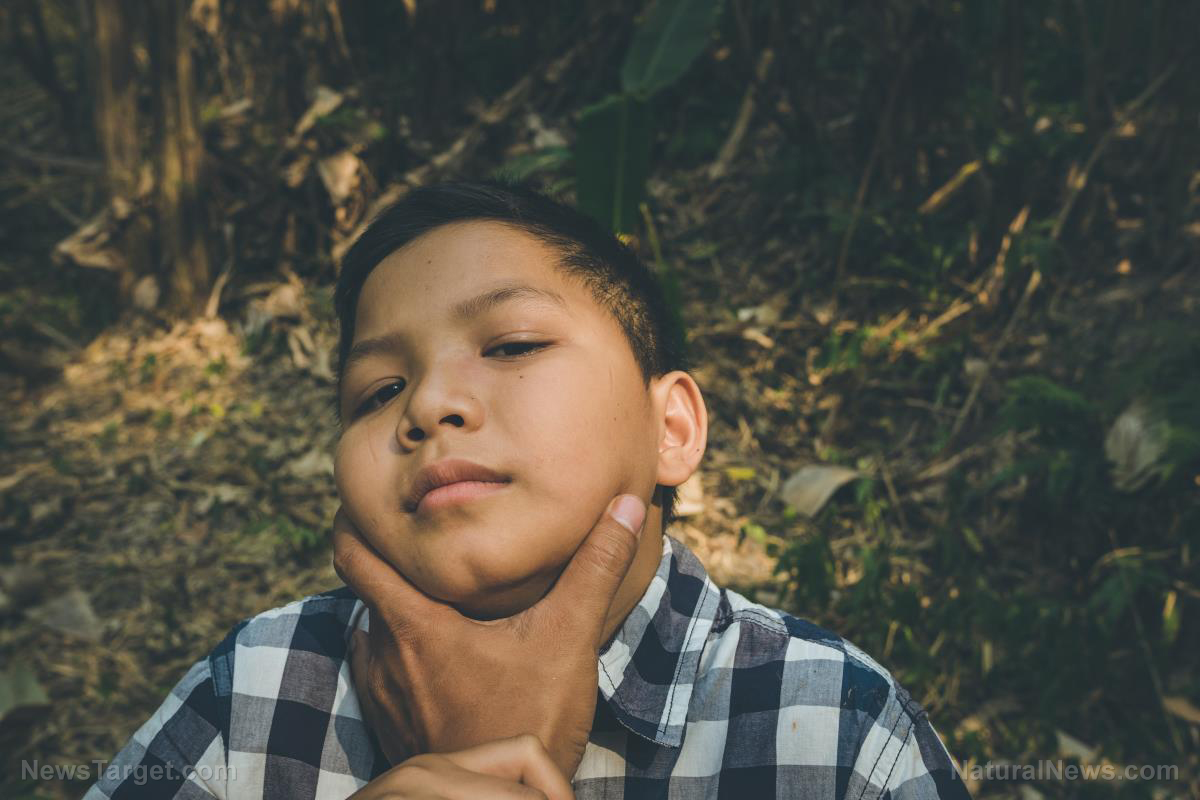
This is not the first time Kotzias has disclosed the presence of such heinous criminal activity. In October 2018, the former official stated, "We sent 93 cases to the Prosecutor, highly evaluated ambassadors went to jail, but the press did not write about them. Because the person who gives a visa in Constantinople [Istanbul] to an unaccompanied child is not just a criminal, he is traitor. A visa for a 14-month-old unaccompanied baby and they tried to cover it up for him."
The former official says he has filed 93 prosecution cases involving diplomats seeking to exploit children. Fortunately, these people are already in jail. "The fact that I saved a few souls will make me sleep quietly when my life is over," Kotzias commented.
But the illegal organ trade is far from extinction, and for thousands of children, this nightmare is still far too real.
Illegal child organ harvesting on the rise
Writing for the Gatestone Institute, Maria Polizoidou reports that there are over 3,000 unaccompanied immigrant children residing in Greece, and some 42 percent of those children are homeless or live in a non-permanent residence. All of them are at risk of being exploited, either through sex trafficking or organ harvesting.
The problem of child organ harvesting is not specific to Greece; the black market for organs is an international issue, ignored as it may be.
The European Union Agency for Law Enforcement Cooperation, or Europol, has estimated that over 10,000 of the 270,000 refugee children who entered Europe in 2015 are missing. Brian Donald, Europol’s chief of staff, says that many of the children were unaccompanied, so it is possible the number of missing kids is much higher.
A 2016 report from Europol indicates that corruption is a primary factor in facilitating people smuggling.
The United Nations Office on Drugs and Crime also reported:
In 2011, it was estimated that the illicit 'organ trade' generated illegal profits between USD 600 million and USD 1.2 billion per year. Underground 'organ markets' present a significant threat to the security of national organ donation systems, eroding the image of transplantation and public confidence in organ transplantation worldwide.
... Trafficking in Persons Protocol states that if the victim is a child, that is a person below the age of 18, consent is irrelevant regardless of whether any improper means (such as deception, force, abuse of a position of vulnerability) have been used. That means, trafficking in children for organ removal only requires that there is an act (recruitment, transport, transfer, harbouring or receipt of a child) for the purpose of exploitation through organ removal.
Greece has been identified as a prime source of black market organ harvesting for several years now. In 2012, the New York Times reported on the rise of illegal organ trading in Europe. Greece was named as one of the countries where illegal organ sales were appearing as a result of poor financial status.
"I will sell my kidney, my liver, or do anything necessary to survive," a Serbian woman told the Times.
Much of the organ market also involves migrants and refugees, and as Katzias has revealed, unaccompanied children are especially at risk.
"Human sacrifices"
In 2016, the U.K.'s Independent reported that refugees who were unable to pay for being smuggled from Africa to Europe were being killed for their organs.
As Polizoidou reports:
Kotzias, for decades, was a member of the "international left" and an active globalist. He is considered by many "an insider". Now he has taken the mask off of the supposedly humanitarian face of Greek and European hospitality to immigrants and refugees. Under the "humanitarian" face and the open-border policies there is the face of profit from people-smuggling. Part of the migration effort, evidently, is all about money, not about helping foreigners in need.
Across the EU, the plight of human trafficking for organ smuggling can be seen. Katzias "revealed that a network of government officials, doctors and organ buyers, all of whom facilitate and profit from illegal organ trafficking," exists. Polizoidou says there is a "house of human sacrifices in Greece and the EU," and that even children are being put up for sale on the organ market. Egypt is another hub for black market organs.
The black market for organs is booming around the globe. Estimates suggest that for every three people who need a kidney, only one is available -- and transplants are notoriously precarious endeavors. As the world's population gets older and sicker, the need for organs is only going to grow. Some wealthy elite are even going so far as to buy blood from young people to preserve their health.
See more coverage of the news mainstream media isn't reporting on at Evil.news.
Sources for this article include:
Please contact us for more information.























